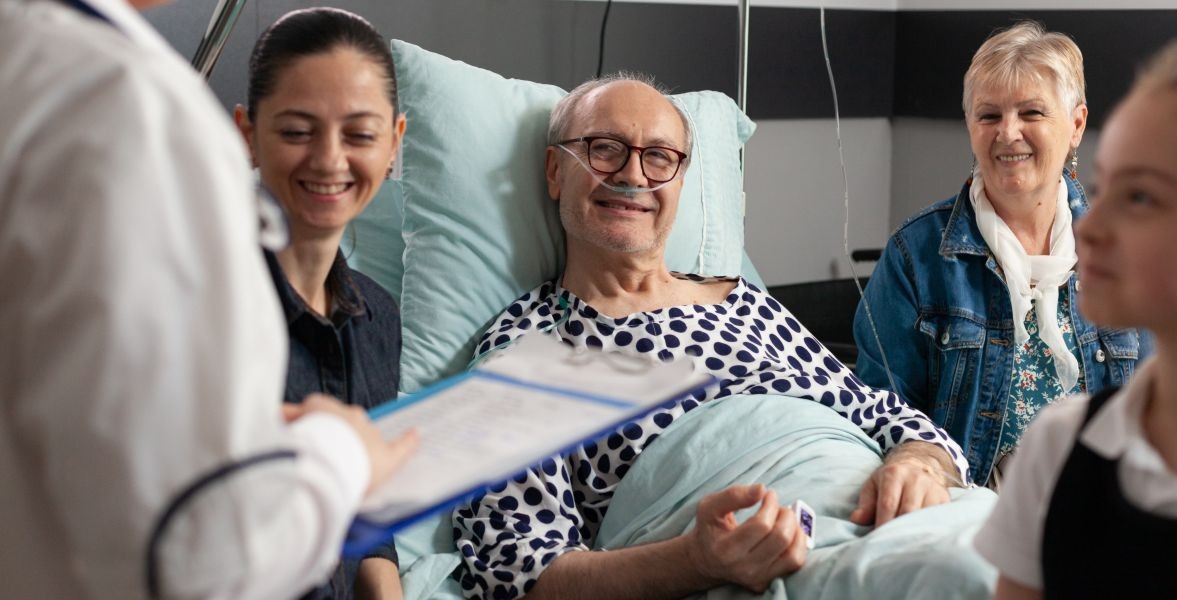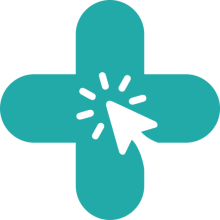Published - Fri, 14 Oct 2022

All you want to know about COPD
Chronic Obstructive
Pulmonary Disease (COPD)
refers to a group of diseases that has bronchitis and Emphysema. Over time,
COPD makes it tougher to breathe. You can’t reverse the damage to the lungs,
however, lifestyle changes and medication will assist you to manage the
symptoms.
o
Chronic
bronchitis irritates
your bronchial tubes, which carry air to and from your lungs. In response to
irritation, the tubes swell and secretion (phlegm or “snot”) builds up on the
lining. The build-up narrows the passage, making it difficult to push air into
and out of your lungs.
Small, hair-like structures called
cilia unremarkably move secretion out of your airways. however, the irritation
and inflammation from bronchitis and/or smoking damage them. The broken cilia
can’t facilitate clear secretion.
o Emphysema
Emphysema is the breakdown of the walls
of the little air sacs (alveoli) at the tip of the bronchial tubes, within the
“bottom” of your respiratory organ. Your respiratory organ is like a tree. The
trunk is the cartilaginous tube or “trachea,” that branches into the “bronchi,”
which further terminate into the air sacs or “alveoli.”
The air sacs play a vital role in
transferring oxygen into your blood and carbon dioxide out. The damage caused
by respiratory disorder destroys the walls of the air sacs, making it
exhausting to take a full breath.
What are the causes of
COPD?
The primary cause of COPD
is smoking. however, not all smokers develop the sickness. you'll be at higher
risk if you:
o
Are
over the age of sixty-five.
o
Have
been exposed to pollution for a long time.
o
Have
occupational exposure to toxic chemicals or fumes.
o
Have
alpha-1 antitrypsin deficiency (AAT), a genetic risk issue for COPD.
o
Had
a history of repeated infections throughout childhood.
What are the signs and
symptoms of Chronic Obstructive Pulmonary Disease?
o
Cough
with copious secretions that persists for a long time.
o
Difficulty
taking a deep breath.
o
Shortness
of breath with gentle exercise (like walking or climbing stairs).
o
Shortness
of breath playing regular daily activities.
o
Wheezing.
How is COPD diagnosed?
To assess your lungs and
overall health, your healthcare provider will medical history, perform a
physical examination, and order some tests, like PULMONARY FUNCTION TESTS.
Medical history
To diagnose COPD, your doctor
can ask queries like:
o
Do
you smoke?
o
Have
you had long-run exposure to dust or air pollutants?
o
Do
any members of your family have COPD?
o
Do
you get breathless with exercise? Or even while resting?
o
Have
you had a cough for a very long time?
o
Do
you cough up phlegm?
Physical Examination
To help with the diagnosis,
your doctor can do a physical examination that includes:
o
Listening
to your lungs and heart.
o
Checking
your vital sign and pulse.
o
Examining
your nose and throat.
Tests
Providers use an easy
check known as SPIROMETRY to ascertain how well your lungs work. For
this check, you blow air into a tube connected to a machine. This respiratory
organ performs check measures what quantity of air you'll inhale in a breath
and how quickly you'll exhale.
Your doctor might also
wish to run a couple of other tests, such as:
o
Pulse
oximetry: This check
measures the oxygen levels in your blood.
o
Arterial
blood gases (ABGs):
These tests check the oxygen and carbon dioxide levels.
o
Electrocardiogram (ECG or EKG): This checks on the heart
and rules out cardiovascular disease as a reason for shortness of breath.
o
Chest
X-ray or chest CT scan:
Imaging tests seek for changes that COPD causes.
o
Exercise
testing: Your doctor uses
this to work out if the oxygen level in your blood drops after you exercise.
Created by
Rigomo Team
Rigomo is a leading online education platform that offers a wide range of courses to help individuals enhance their skills and achieve their career goals. With our user-friendly interface and expert instructors, we strive to provide high-quality education to everyone, anytime and anywhere. Join us today and take the first step towards a brighter future.
Rigomo is an e-learning platform that was founded in 2019 by a team of dedicated professionals with a passion for revolutionizing the way people learn. The platform offers a range of online courses that cover various industries, including business, technology, healthcare, and more.
Rigomo's courses are designed to be interactive and engaging, with a focus on practical skills that learners can apply in their careers. The platform uses a combination of video lectures, quizzes, and hands-on projects to help learners master the subject matter.
Rigomo is committed to providing affordable and accessible education to people around the world. The platform offers a range of pricing options, including monthly and annual subscriptions, as well as pay-as-you-go options for individual courses.
Since its launch, Rigomo has received numerous accolades for its innovative approach to e-learning. The platform has helped thousands of learners across the globe acquire new skills and advance their careers.
As Rigomo continues to grow, the team remains committed to providing high-quality education that is accessible to all. The platform is constantly updating its courses and features to ensure that learners have access to the latest tools and technologies.
Comments (0)
Search
Popular categories
Health and Wellness
231Skill Development
7Technology
5Community Impact
2Success story
2Creativity
1Latest blogs

DeepSchool: The Story of an Idea That Refused to Sit Still
Tue, 02 Dec 2025

Transforming Emergency Care: The Story Behind Rigomo's Revolutionary PPMMP Course
Sun, 12 May 2024

Empowering Rural Healthcare: How Pogiko's AI is Bridging the Gap in Medical Services
Thu, 25 Apr 2024

Write a public review